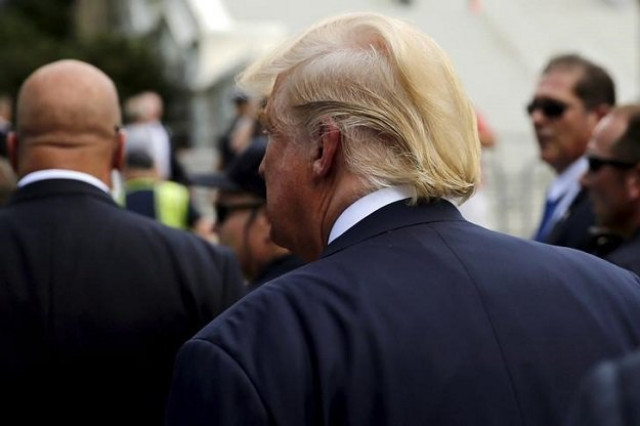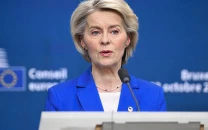Commentary: Why Trump’s tough talk on Iran will backfire
The new administration needs Iran’s cooperation in its fight against Islamic State, in both Syria and Iraq

US President Donald J Trump. PHOTO: REUTERS
In his first weeks in office, Trump is eager to show that he will take a more aggressive and confrontational approach with Iran, which he called 'the number one terrorist state' during an interview with Fox News on February 5. Tehran provided an opening on January 29, when it tested a medium-range ballistic missile. Iranian officials said the launch did not violate a United Nations Security Council resolution that prohibits Iran from testing weapons systems that can carry nuclear warheads.
Trump imposes new Iran sanctions
Iran, which has a history of pushing boundaries and instigating the United States, timed its latest missile test to gauge how the new US administration would respond to a show of force. On February 1, Trump’s national security adviser Michael Flynn declared: "As of today, we are officially putting Iran on notice."
Two days later, the administration imposed new sanctions on 25 people and entities involved in developing Iran’s missile program or helping the Islamic Revolutionary Guard Corps in supporting groups that Washington has designated as terrorist organizations. "The Trump administration will no longer tolerate Iran’s provocations that threaten our interests," Flynn said in announcing the sanctions.
Netanyahu denounces Iran missile test ahead of Trump meeting
Hours before imposing the new restrictions, Trump fired off a series of tweets, including one that warned: "Iran is playing with fire – they don’t appreciate how ‘kind’ President Obama was to them. Not me!"
These comments are setting the framework for a new policy toward Iran. If they’re not careful, Trump and his military advisers may risk boxing themselves into a position where they have to respond forcefully to any future Iranian missile tests or meddling in the region. Beyond that danger, the new administration needs Iran’s cooperation in its fight against Islamic State, in both Syria and Iraq. Trump has identified that battle as his highest foreign policy priority. On January 28 he signed an executive order giving the Pentagon and national security officials 30 days to submit a plan for 'defeating' Islamic State.
The group has already suffered some significant defeats, losing a quarter of the territory under its control last year thanks to ground offensives by Iraqi and Syrian forces backed by US air strikes. But by picking a fight with Iran, Trump could be shooting himself in the foot before he even starts his own battle against Islamic State.
Iran hints at joining Pakistan-Russia-China alliance
Iran’s supreme leader, Ayatollah Ali Khamenei, fired back at Trump on February 7, declaring sarcastically in a speech before military commanders: "We actually thank this new president! We thank him, because he made it easier for us to reveal the real face of the United States."
Of all the regional players, Iran is the one that gained the most from America’s invasion of Iraq in 2003. Washington ousted Tehran’s sworn enemy, Saddam Hussein, from power and helped install a Shi’ite government for the first time in Iraq’s modern history. As US troops got bogged down in fighting an insurgency and containing a civil war, Iran extended its influence over all of Iraq’s major Shia factions. Iran helped fuel and prolong the Iraqi civil war by arming and training numerous Shia militias that targeted American troops and Iraq’s Sunnis.
The Iranian regime has several interests in its neighbor: Iraq provides a buffer against Saudi Arabia and other Sunni Arab states that compete with Iran for dominance over the Persian Gulf. Tehran also wants to guarantee that Iraq does not pose an existential threat to Iranian interests, as Hussein did when he invaded Iran in 1980, instigating the eight-year Iran-Iraq war that devastated both countries.
Defying new sanctions: Iran vows to rein down missiles if threatened
After Islamic State militants captured large swaths of northern Iraq in June 2014, including the city of Mosul, Iran stepped in to shape Iraq’s military response. Iran helped train and equip thousands of volunteers who joined largely Shia militias that worked alongside the Iraqi security forces. With a weakened Iraqi military, the militias proved crucial in stopping the Sunni militants’ initial advance in 2014.
The Trump administration has been signaling that it would side against Iran in Tehran’s rivalry with Sunni Arab states, especially Saudi Arabia. The two powers have been fighting a cold war for over a decade. After the nuclear deal, Saudi leaders were worried that Iran would gain the upper hand thanks to the Obama administration. Under the deal, Iran was allowed to re-enter the global financial system, increase its oil exports and access nearly $50 billion in frozen assets. Iran and Saudi Arabia are backing competing factions in Iraq, Syria, Yemen, Lebanon and Bahrain – and the series of ensuing proxy battles have shaped the Middle East since the American invasion of Iraq.
The Trump administration seems to be wading into this larger competition through Yemen, where Saudi Arabia launched a war in 2015 against Houthi rebels and their allies. The Houthis, who belong to a sect of Shia Islam called Zaydis, are allies of Iran. While the Saudis are quick to label the Houthis as Iranian proxies, it’s unclear how much support they received from Tehran before the Saudi-led war. Under Obama, the Pentagon rushed billions of dollars in smart bombs and spare parts to help the Saudi air force continue its bombing campaign of Yemen. Washington has also provided intelligence assistance and mid-air refueling support to the Saudi military.
Trump imposes new Iran sanctions
Trump and his advisers have gone beyond Obama’s military assistance and adopted Saudi Arabia’s labeling of the Houthis as Iranian proxies. On February 3, when Flynn announced new sanctions against Iran, he claimed that one of Tehran’s "proxy terrorist groups attacked a Saudi vessel in the Red Sea" – a reference to a Houthi strike on a Saudi ship in the ongoing war.
Ironically, the Yemen conflict is creating more extremism by allowing militants affiliated with Islamic State and Al Qaeda in the Arabian Peninsula to establish new safe havens.
The war in Yemen will not end without some accommodation between Saudi Arabia and Iran. But the Trump administration’s rhetoric and adopting of Saudi positions risks inflaming the conflict. Trump’s tough talk against Iran will ultimately hamper his ability to confront Islamic State and other jihadists – his number one enemy.



















COMMENTS
Comments are moderated and generally will be posted if they are on-topic and not abusive.
For more information, please see our Comments FAQ